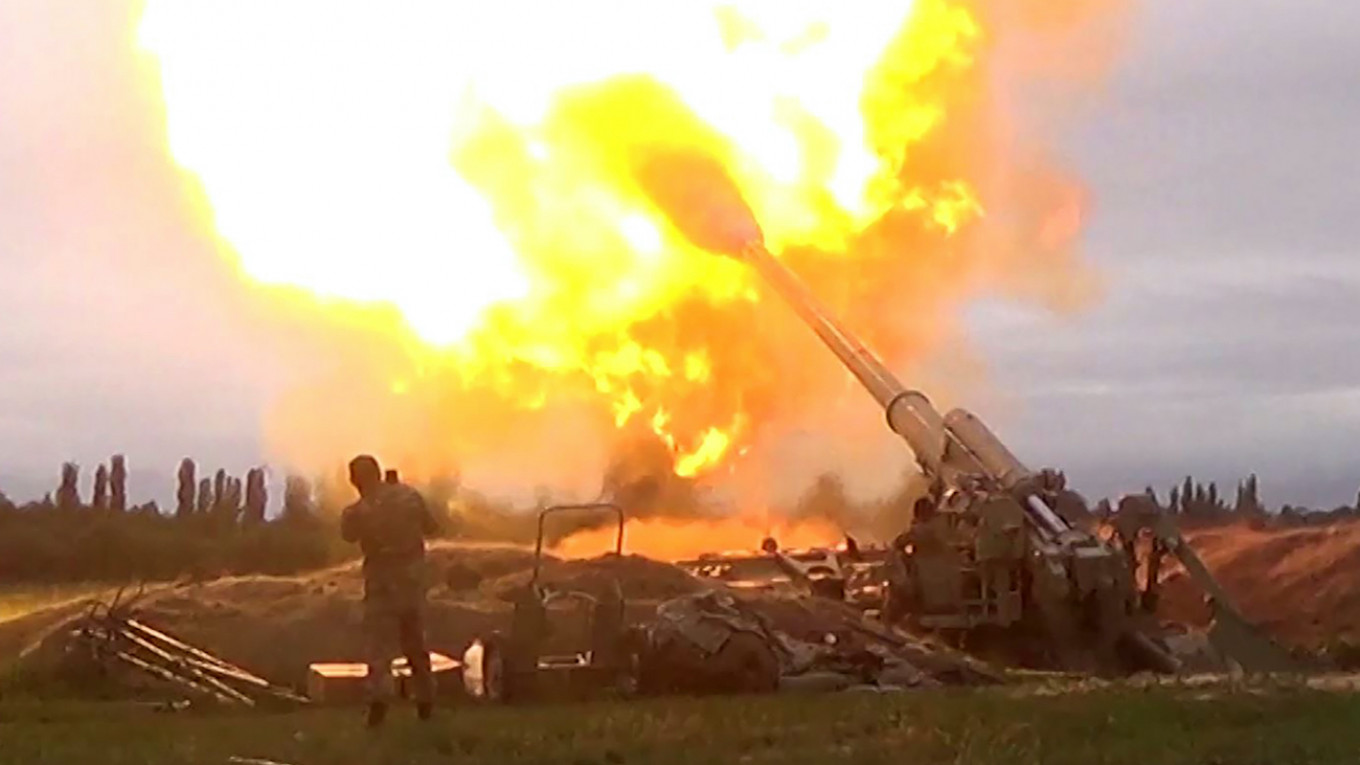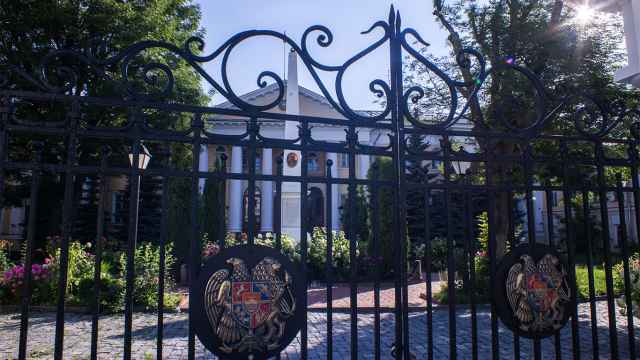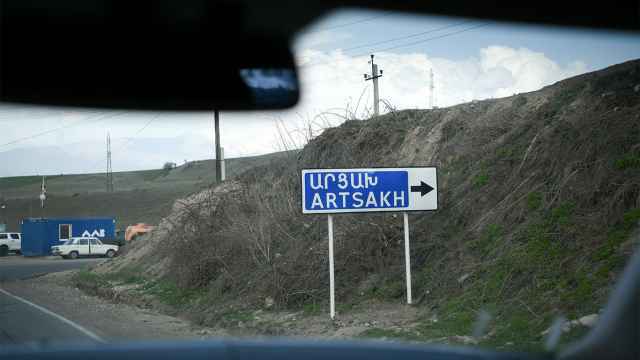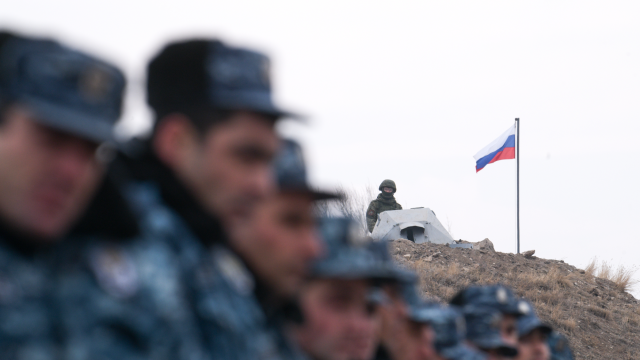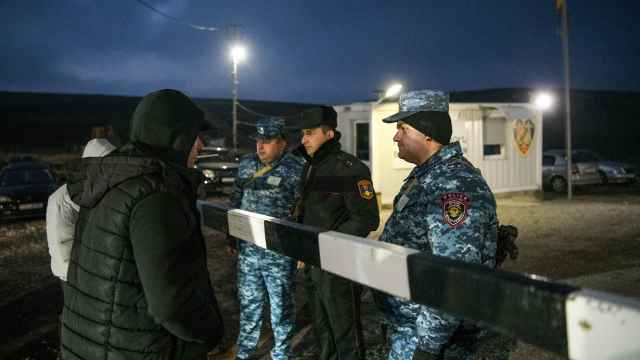The current flare-up that broke out over the weekend between Azerbaijan and Armenia in their long-running territorial dispute over Nagorno-Karabakh goes far beyond the usual skirmishes. There are reports of helicopters being shot down, the use of drones, and missile strikes.
There has not been such a violent escalation of the conflict there since April 2016. Suffice to say that Azerbaijan, Armenia, and the self-proclaimed republic of Nagorno-Karabakh — internationally recognized as Azerbaijan’s territory but controlled by Armenian separatists — have all declared martial law, which they did not do four years ago. Nor did Stepanakert, the biggest city in Nagorno-Karabakh, come under fire back then.
At the same time, current events can hardly be described as coming out of the blue. After the flare-up in July, which unusually took place not at the line of contact but on the Armenia-Azerbaijan border, there was a lingering feeling that the armed standoff had simply been put on hold.
The “Karabakh pendulum” — when military escalation swings back to rounds of negotiations—seems to have become stuck this time. Unlike the four-day war in April 2016, when the pendulum returned to the field of diplomacy on the fifth day, that didn’t happen this summer.
There were, of course, efforts to minimize the risk of armed unrest on the border, primarily by Russian diplomacy. Contact was activated via both Foreign Ministry and Defense Ministry channels. Russia’s efforts had the backing of the West, and both sides in the conflict saw Moscow’s mediation as a largely positive aspect.
Yet negotiations between Armenia and Azerbaijan did not resume, even at a symbolic level, and the excuse given of the new coronavirus pandemic wasn’t very convincing: it didn’t prevent other foreign meetings by representatives of the two countries at the same time.
There are other nuances to the current drastic escalation, too, including increased Turkish involvement. Soon after the July border clashes, Turkish and Azerbaijani troops held joint exercises. Representatives of Ankara started speaking out about the ineffectiveness of the peace process, and Turkish President Recep Tayyip Erdogan, speaking earlier this month at the 75th UN General Assembly, described Armenia as the biggest obstacle to long-term peace in the South Caucasus.
This is not to say that the new escalation was provoked by Turkey, but it undeniably contributed to Azerbaijan’s tougher position amid the stalled talks.
Another important factor is changes to Baku’s diplomatic lineup. Elmar Mammadyarov, Azerbaijan’s long-serving foreign minister, retired during the July border clashes. His replacement is the former education minister, Jeyhun Bayramov, who does not have much diplomatic experience. Meanwhile, Hikmet Hajiyev, a foreign policy advisor to Azerbaijani President Ilham Aliyev, now has an expanded operational role.
But the issue is not so much the new appointments as Mammadyarov’s departure. For the last two years, he was the chief optimist over what concessions the new Armenian government might be prepared to make under Nikol Pashinyan. Ever since Armenia’s Velvet Revolution, which brought Pashinyan to power in 2018, Baku had nurtured hope that the new prime minister, who has no connections to Nagorno-Karabakh and who, on the contrary, had waged war on Armenia’s “Karabakh clan” (whether or not that clan really exists is another question), could find a new opening to resolve the long-running conflict.
To be fair, it wasn’t only Mammadyarov who held such hopes: they were shared by many influential experts and diplomats in the West. Even within Armenia, Pashinyan’s opponents tried to label him a traitor who had sold the country’s national interests in exchange for Western money.
In reality, however, the position of Armenia’s new prime minister on Nagorno-Karabakh was tougher than ever, as evidenced by his demands that representatives of the breakaway Nagorno-Karabakh republic be directly involved in negotiations, not to mention his bold statement that “Karabakh is Armenia.”
These actions could not fail to reinforce the position of hawks in Baku. Following the July border clashes, Azerbaijan’s foreign policy line became tougher. After all, the status quo doesn’t suit Azerbaijan at all, since it makes the country feel like the losing side. Baku has never ruled out the use of force to try to solve the problem of its territorial integrity.
The current escalation is a direct consequence of freezing the negotiations process. There have never been such short intervals between major armed flare-ups in the Armenia-Azerbaijan conflict. Even the four-day war of 2016 was preceded by a nearly four-month lull. Now there are two hotspots in the standoff: one on the border, 300 kilometers from the line of contact, and another in Nagorno-Karabakh itself.
There are several possible outcomes to the current situation. The most likely is a battle for small and not particularly important pockets of land, allowing for the symbolic declaration of a “victory,” and a more concrete PR victory at home. That strategy may look foolproof in theory, but in practice, raising the bar in a conflict makes it very difficult to stop as planned. The opponent may have an entirely different view of things, and then a new strand of the confrontation is inevitable.
Incidentally, it cannot be ruled out that the current escalation is part of preparations for negotiations, and is needed to shore up diplomatic positions and ramp up pressure on the opponent before resuming talks.
Whatever reasoning is behind the armed clashes, one thing is clear: the importance of military force in the Nagorno-Karabakh peace process is growing with every day. The absence of talks is becoming critical. If the Karabakh pendulum isn’t repaired very soon and doesn’t swing over from the generals to the diplomats (even allowing for a possible swing back the other way afterwards), it may become irreparable. And then the prospects of yet another regional war breaking out once again will stop being a mere scenario described by experts.
This article was first published by the Carnegie Moscow Center.
A Message from The Moscow Times:
Dear readers,
We are facing unprecedented challenges. Russia's Prosecutor General's Office has designated The Moscow Times as an "undesirable" organization, criminalizing our work and putting our staff at risk of prosecution. This follows our earlier unjust labeling as a "foreign agent."
These actions are direct attempts to silence independent journalism in Russia. The authorities claim our work "discredits the decisions of the Russian leadership." We see things differently: we strive to provide accurate, unbiased reporting on Russia.
We, the journalists of The Moscow Times, refuse to be silenced. But to continue our work, we need your help.
Your support, no matter how small, makes a world of difference. If you can, please support us monthly starting from just $2. It's quick to set up, and every contribution makes a significant impact.
By supporting The Moscow Times, you're defending open, independent journalism in the face of repression. Thank you for standing with us.
Remind me later.



